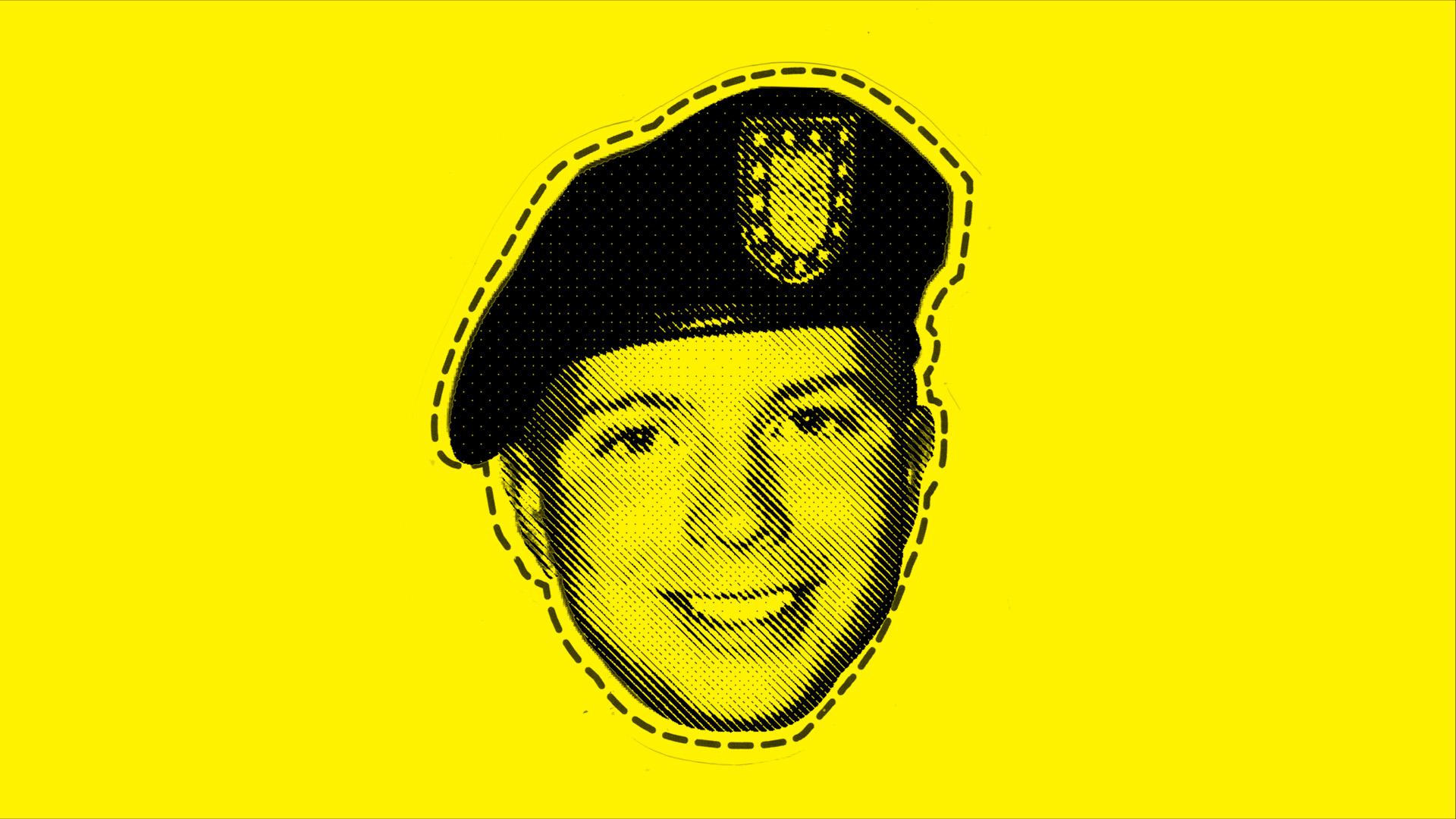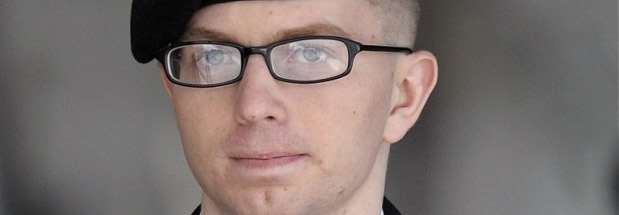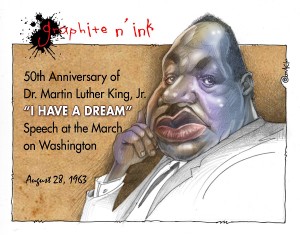
Post-adolescence idealism

NEW YORK CITY – It turns out that there is a psychological condition – it is unclear whether it is a syndrome, a phase, a disease, a madness or what – called “post-adolescence idealism.” It seems that the main symptom is when someone, for no reason, believes or is convinced that he can change the world.
Bradley Manning, the soldier responsible for the greatest leak of classified information in history, and the man who [was sentenced this week by a military judge to 35 years in prison] for daring to reveal what the government was doing in the name of the people (but hiding the facts for its own good and “national security”), apparently suffers from this condition.
None of those who promote warlike policies to kill and destroy populations, to intervene in, invade and besiege entire nations are diagnosed with any ailment or psychological condition or disease, much less are deemed to be mad. Apparently, all of them are “normal.”
U.S. Navy Capt. David Moulton, a military psychiatrist, last week testified in the court-martial of Manning, saying that the soldier suffered from a list of psychological conditions, including “post-adolescence idealism.”
According to Moulton, “Manning had the impression that the information he was leaking would change the way in which the world saw the wars in Iraq and Afghanistan and, in fact, future wars.”
The psychiatrist added that Manning believed that his actions “would lead to a greater good. The entire society would conclude that the war was not worthwhile, that no war was worthwhile.”
In “post-adolescent idealism,” he commented, someone “truly feels that he can achieve a social impact. […] It is a moment when the person […] is focused on making a difference in the world, on achieving social changes, things like that. […] It is a period of transition when someone still has some of the idealism of youth.”
Next weekend, Washington marks the 50th anniversary of the historic March for Jobs and Freedom organized by the civil rights movement led by the Rev. Martin Luther King Jr., in which King delivered his famous speech “I Have a Dream.”

On Aug. 28, 1963, hundreds of thousands of people demanded equality, “freedom and jobs” for every citizen. King, with his extraordinary rhetoric, declared: “I say to you today, my friends [that] even though we face the difficulties of today and tomorrow, I still have a dream. It is a dream deeply rooted in the American dream.
“I have a dream that one day this nation will rise up and live out the true meaning of its creed […] that all men are created equal.” He went on: “I have a dream that my four little children will one day live in a nation where they will not be judged by the color of their skin but by the content of their character.”
He said that the marchers had come to Washington “to remind America of the fierce urgency of Now. […] Now is the time to make real the promises of democracy. Now is the time to rise from the dark and desolate valley of segregation to the sunlit path of racial justice. […] Now is the time to make justice a reality for all of God’s children.”
Others also dreamed that they could change this country by organizing, defending principles, denouncing injustice, creating new movements, all that history that only rarely is told (thereby the importance of historians like Howard Zinn.)
The labor struggles, the antiwar movements, the movements in defense of the environment, in defense of women’s rights, gays’ rights, immigrants’ rights, etc., continue to this day.
American youths and immigrants in a new group called Dream Defenders occupied the offices of the Florida State Capitol for 31 days to denounce the laws used to justify the murder of young Afro-American Trayvon Martin. That action will be followed by an effort to empower new voters so they can confront the state’s conservative powers.
The action had a national profile, and figures like Harry Belafonte and Jesse Jackson showed up to join the demonstrators and say that they are the new generation that inherits the previous struggles and therefore are part of the hope for a different future in this country.
At the same time, the movement to defend the rights of immigrants – which is considered the new civil rights movement by some of those who accompanied King 50 years ago – has been revitalized by young immigrants who have dared to directly confront the authorities, from local sheriffs and immigration agents to federal legislators and even President Obama with their slogan, “undocumented and fearless,” demanding their basic rights and an end to the deportations and the harassment on their families and communities.
Immigrant workers, from Florida farmers to car washers or urban day-workers, also have redoubled efforts to demand their labor rights and an honest living.
Thus, from the most vulnerable sector, the union movement is reborn in this country, with champions like the Immokalee Workers’ Coalition, which confronts the most powerful food companies and has won several battles in their demands for “food with justice,” including the liberation of thousands of laborers who worked under conditions of slavery.
Elsewhere we find the teachers who have rebelled against “reforms” promoted by the politicians and the wealthiest and most powerful men in the country, in defense of public education as a basic right for everyone, as something essential to defend democracy and enable students to continue to dream of something more than their role in the market.
Apparently, all these people and more, from King to today’s dreamers, suffer from this disease called “post-adolescence idealism.” I’m sure that a pill is already being developed that will alleviate that ailment. But one can dream that there is no cure for it. Let’s hope it is a very contagious disease.
(From the Mexican newspaper La Jornada)
For related articles, click to read:


